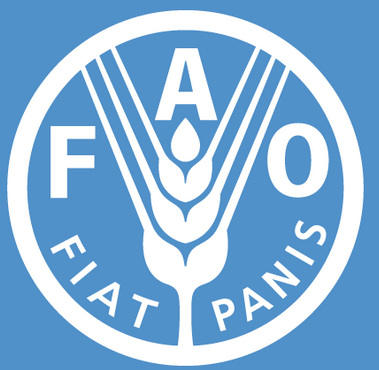FAO worries about impact of disasters on food security
 The Food and Agriculture Organisation (FAO) has expressed concern about the impact of natural hazards and disasters on food security in the sub-region, saying the phenomenon is further exacerbated by climate change.
The Food and Agriculture Organisation (FAO) has expressed concern about the impact of natural hazards and disasters on food security in the sub-region, saying the phenomenon is further exacerbated by climate change.
The Organisation said globally, from 2003 to 2013, 1.9 billion people in the developing regions were affected by natural hazards and disasters, causing an estimated half a trillion US dollars in damage.
It is estimated that, approximately 22 per cent of the total economic impact of these disasters is absorbed by the agriculture sector.
In an interview with the Ghana News Agency, Ms Beth Crawford, Regional Initiative Programmes Coordinator, FAO said to minimise the impact of these natural disasters there was the need to increase resilience of vulnerable livelihoods to disasters and crises.
“We need to combine social protection measures with agricultural productivity enabling the poorest to be part of the market system to attain agricultural growth and comprehensive food and nutrition security in Africa,” she added.
Ms Crawford said Africa had impressive growth rates, averaging around five per cent in 2014.
Indeed, one quarter of countries in the region grew at about seven per cent or more, and seven of the 10 fastest growing economies in the world are in Africa.
She explained that despite these impressive growth levels, Africa sees a large part of the population trapped in poverty, and levels of hunger, undernourishment and other forms of malnutrition are still relatively high.
Ms Crawford noted that one issue that made food security a complex problem in Africa, was that the continent had remained for the last three decades a net importer of food and non-food agricultural products.
“This can create serious problem when high and rising food import bills take money away from other important development agendas without resolving food insecurity.”
She said food consumption trends would indicate that Sub-Saharan Africa would continue to depend on imports for the three staple grains of wheat, rice and maize, as production is not meeting the increasing demand.
She expressed the need for Africa to ensure that the youth were engaged effectively in agribusiness and agro-processing, with approximately 11 million Africans joining the labour market every year for the next decade.
Ms Crawford said one of FAO’s priority programmes, entitled Africa’s Commitment to End Hunger by 2025, supported governments’ efforts to promote sustainable food security and nutrition by using data to inform policies and programmes, and enhancing governance and coordination.
She explained that these initiatives were anchored within the CAADP implementation framework underpinning the Malabo commitments, and by extension the Sustainable Development Goals 1 and 2, which focussed not only on ending hunger but on poverty, food insecurity and all forms of malnutrition.
Ms Crawford said another priority programme, entitled Sustainable Production Intensification and Value Chain Development, which aimed to foster sustainable agricultural production and transformation and build safe and efficient food systems.
She said the focus on climate change adaptation and mitigation continued to be strengthened, and deliverables were linked to the SDGs.
Ms Crawford said another priority programme was called Building Resilience in Africa’s Drylands, with the goal to enhance the capacity of dryland countries to anticipate, mitigate and respond to shocks, threats and crises affecting their livelihoods.
She said this strategic and programmatic focus was closely tied with continental aspirations as espoused in the AU Malabo Declaration’s Commitment on resilience.
Ms Crawford said a special cross-cutting programme entitled Youth Employment: enabling decent agriculture and agri-business and aims to support the region in harnessing its huge demographic dividend, while contributing to the rejuvenation of the aging farming population.
She said the programme looked at the potential for job creation in rural non-farm economic activities in food value chains, agri-business development and their related support services.
Source: GNA
